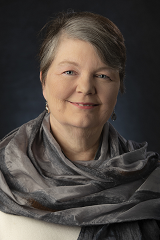By: Barbara Glesner Fines, Dean and Rubey M. Hulen Professor of Law, UMKC School of Law
In any conversation about integrating greater opportunity for professional identity formation pedagogy into the curriculum, particularly when suggesting that this be part of the required doctrinal curriculum, one will hear an objection that there is no room.[i] For many doctrinal teachers, incorporating professional identity formation opportunities or focus into classes would require sacrificing critical doctrinal content and analytical skills. The pressures toward coverage as a course goal are not insubstantial. Textbooks grow exponentially each year, reflecting the growing breadth of the law and legal resources. If a faculty member assigns only a small portion of a textbook, or their syllabus identifies far fewer topics than those contained in the syllabi of other professors teaching the same course, then students feel cheated. The “mile-wide, inch-thick” bar exam looms over all.
The pressures toward broad coverage of doctrine as the primary goal of course design are premised on a number of false premises about student learning. First, faculty presume that coverage means learning, when research tells us that more content does not mean more learning. “If learning is to endure in a flexible, adaptable way for future use, coverage cannot work. It leaves us with only easily confused or easily forgotten facts, definitions, and formulas to plug into rigid questions that look just like the ones covered.”[ii] Research in undergraduate programs and medical schools confirms that more content does not lead to more learning. Deep learning requires context, repetition, application, and reflection. For this reason, experts in course design emphasize focusing on “the big questions” or the “hard parts” of a course, so that students can master not only a doctrinal subject but also an approach to learning that subject that will support their lifelong learning.
Second, faculty presume that professional identity formation opportunities are disconnected from knowledge and skills, rather than providing the critical context that motivates and supports deep learning. Quite the opposite is true. Students approach their subject-matter study with much greater engagement and a broader lens when they are asked to do the following: (1) consider themselves in the role of attorney in applying a particular doctrine; (2) examine how the law impacted the individual clients in the cases they are studying; or (3) reflect on how the values brought forth in the classroom discussions comport with their own personal values and experience.
Third, faculty presume that the classroom is the primary locus of learning, when even the American Bar Association’s definition of a credit hour recognizes that most of a student’s learning occurs outside of class. Classroom time is only one-third of the time students devote to any given subject. Many faculty are coming to realize that this precious time in which students are together in the classroom is squandered if the opportunities for discussion, debate, and practice are spent on lectures (even if interspersed with question prompts) designed to cover content. Even before the pandemic disrupted pedagogies, faculty had discovered the possibilities of a flipped classroom – providing lectures and efficient delivery of knowledge transfer outside of class and using class time to focus on development of skills and perspectives. Faculty can then more easily take a small but significant further step to ensure that a frame for these exercises is the student’s own development as a professional.
So how do we exorcise the curse of coverage and make room for opportunities for professional identity formation in the classroom? We do so by questioning the assumptions that more content is critical to learning and instead focusing on the big questions, marrying professional formation with knowledge and skill development, and finding more efficient ways to deliver content instruction outside of class so as to engage students more fully in the classroom. Please reach out to me at bglesnerfines@umkc.edu if you have any questions or comments.
[i] This piece is excerpted from The Curse of Coverage and Professional Identity Formation, U. St. Thomas L. Rev. (Forthcoming 2023).
[ii] Grant P. Wiggins & Jay McTighe, Understanding By Design 46 (2nd ed. 2005)(Lee Shulman, Taking Learning Seriously, 31(4) Change 10, 12 (July/August 1999).)




